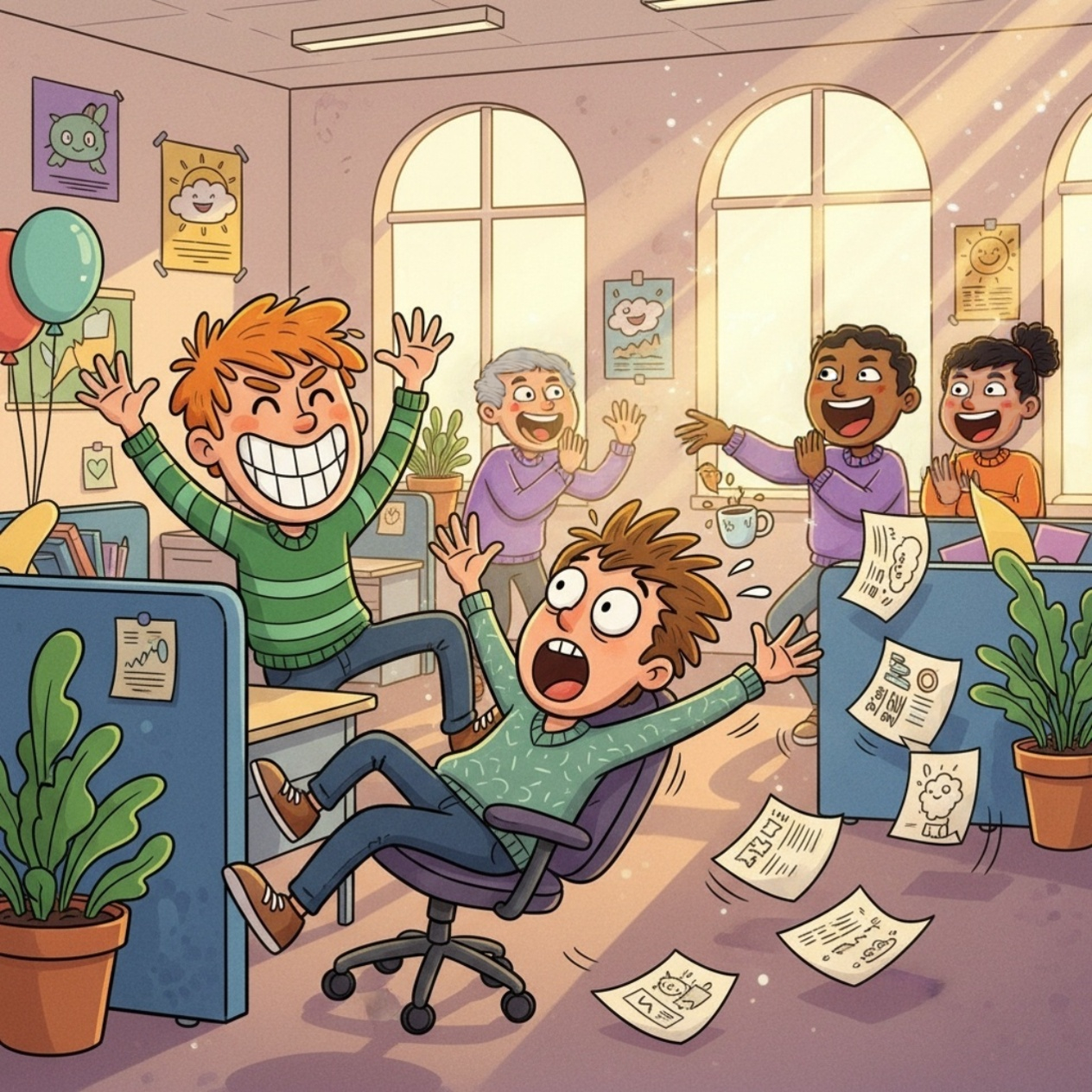
BALTIMORE
10075 Red Run Boulevard
Suite 401
Owings Mills, MD 21117
(443) 738-4900
FREDERICK
10 North Jefferson Street
Suite 200
Frederick, MD 21701
(240) 220-2415
BETHESDA
7315 Wisconsin Avenue
Suite 400W
Bethesda, MD 20814
(240) 220-2415
When Workplace Pranks Go Wrong: Legal Risks Behind “Just Joking Around”
October 16, 2025
Laura L. Rubenstein

Ever watch those social videos where people’s reactions to being scared are filmed? Like, someone next to them randomly screams like they’re getting attacked, someone jumps out of a dark closet, or wears a scary mask and knocks on the window next to them? If it happens in the workplace, it can be a real HR nightmare. In many workplaces, team camaraderie and humor are part of a positive culture — but when pranks cross a line, they can lead to serious consequences including injury, trauma, and legal exposure for both employees and the employer.
The “Just for Fun” Scenario That Isn’t
Consider this: An employee hides behind a door and jumps out to scare a colleague, filming the reaction for social media. The startled employee falls and hits their head, experiences panic symptoms, or later reports that the incident triggered PTSD from a prior trauma. Or a group of coworkers has an ongoing “Nerf gun war” that seems like harmless fun — until someone is struck in the eye, develops anxiety about returning to work, or claims harassment after repeated targeting.
These situations are more common than employers might think — and the aftermath often lands on HR’s desk.
Legal and Workplace Risks
- Physical Injury Claims
Any prank that results in a fall, injury, or medical event (such as a heart attack or panic attack) can lead to a workers’ compensation claim—or even an assault or negligence lawsuit if the conduct was reckless or outside the course of employment. The victim employee could even file criminal charges of assault. - Emotional Distress and PTSD
An employee who experiences humiliation, fear, or emotional trauma from a prank may allege intentional or negligent infliction of emotional distress. If the prank involved taunting, physical intimidation, or use of props (e.g., fake weapons), claims may extend to assault or harassment. - Harassment and Hostile Work Environment
“Jokes” that target a person’s appearance, gender, race, or disability—or that repeatedly single out one employee—can constitute harassment under Title VII or state human rights laws. Even without discriminatory intent, if the behavior creates a hostile or threatening atmosphere, the employer may still be liable for violating their own policies on bullying or unprofessional conduct. - Loss of Trust and Retaliation Concerns
Once a prank goes wrong, employees may lose trust in management if leadership appears to condone the behavior. Retaliation concerns may arise if a victim complains and is later ostracized or mocked for “not having a sense of humor.” - Reputational and Privacy Issues
Filming or posting pranks on social media can raise serious privacy violations and reputational risks. A moment of laughter online can quickly spiral into viral humiliation—and a permanent digital footprint.
How Employers Can Respond and Prevent
- Reinforce Respectful Conduct Policies.
Remind employees that jokes, pranks, and “horseplay” are inappropriate in the workplace when they risk harm, embarrassment, or fear. Clarify that filming or sharing coworkers without consent is prohibited and may violate privacy and wiretapping laws. - Train Supervisors to Intervene Early.
Supervisors should recognize when “fun” crosses into intimidation or harassment and should intervene before someone gets hurt — physically or emotionally. - Investigate and Document Incidents.
Even if no injury occurs, HR should document complaints, interview witnesses, and determine whether policy violations occurred. Take corrective action to prevent recurrence. - Consider the Broader Impact.
Even well-intentioned humor can be experienced differently by others. Employees may have undisclosed health conditions, trauma histories, or religious beliefs that heighten their reactions to stress or fear-based jokes. - Lead by Example.
Leadership tone matters. If managers participate in pranks, it signals that the behavior is acceptable. Promote kindness and inclusion instead of risky humor.
The Bottom Line
Workplace jokes can build camaraderie—but they can also break trust, cause injury, or spark litigation. HR’s role is to draw the line between appropriate levity and unsafe or disrespectful conduct.
The safest rule of thumb? If a “joke” risks harming, embarrassing, or frightening someone—it’s not funny, it’s a liability.
